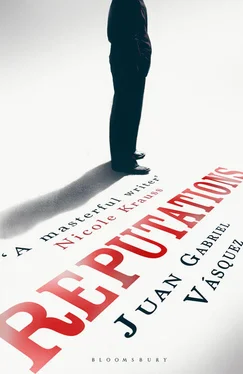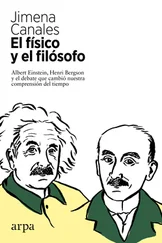‘And the party was over,’ said Samanta.
‘Exactly,’ said Mallarino. ‘The next day I drew the cartoon. And the day after that it was published.’
In those days, subscribing to a newspaper was to expect, every morning, the transformation of the world, sometimes as a brutal jolt to all that you knew, sometimes as a subtle access to a removed reality: the shoemaker’s shop visited by elves during the night. After his move, the first thing Mallarino did was to make sure all the paper boys had the correct address, for one could do without coffee and without breakfast, without running water and without a phone, but not without the newspaper waiting on the doorstep, damp from the recent fog, still cold with the early morning mountain chill, but ready for Mallarino to open the way a child — still in his pyjamas, sleep in the corners of his eyes — opens Christmas presents. Wasn’t it Rockefeller who had them make him his own version of the New York Times , an adulterated version with all the bad news expunged? Mallarino had never been able to understand that: for him it was the indignation or rage or hatred that kept him alive. How could anyone renounce the intense feeling of superiority one feels when hating someone? It was the emotion that made mornings make sense. That morning, Mallarino went directly to the opinion page. And there was his black-framed square, which this time he’d drawn a little thicker, and in the centre of the box, a sort of promontory that looked like it was made of earth, something like a small hill. At the base of the hill, surrounding it, there was a crowd of heads with long straight hair, all seen from the back, some adorned with a girlish ribbon. On top of the hill, on the apex of the headland, was Adolfo Cuéllar — there were Adolfo Cuéllar’s bones and cartilages — dressed in a diamond-patterned waistcoat, the lines of which were strained by the prominent belly. He had his arms open, as if wanting to embrace the world, and his freckled face looked towards the sky. Mallarino had written the caption the way Ricardo Rendón used to: putting on record the name of the character and putting a dash before his fictitious words, as if it were a novel, so that this was what was read (what millions of people were reading at that very moment) on the most read page of El Independiente :
Congressman Adolfo Cuéllar — Suffer the little girls to come unto me .
It wasn’t the first time Mallarino had drawn an ‘out-of-context cartoon’, as he called those caricatures without an obvious link to an immediate reference, a piece of news or something that was common knowledge. But it had never felt as natural as this time. The image had formed in his head the morning after the party, as soon as he had a moment of solitude in the new house and the strangeness forced him to take refuge in his work routine in order not to give in to melancholy. He was still shocked by the confrontation — because it had been a confrontation, a moment of violence — and had woken up feeling brutally fatigued, like someone who’d just had an accident. The tension in his shoulders and neck, the tension in his waist, the pain of his hernia that appeared at moments like that and shot down his left leg. . he took a long shower and then, still in his bathrobe, began to draw. He didn’t feel indignation or rage, but rather something more abstract, like disquiet, almost like the awareness of a possibility. . Of a power, yes, that was it: the awareness of an imprecise power. In twenty-five minutes, not counting the time it took to assemble his materials, the drawing was finished. Mallarino poured himself a beer, lit a cigarette and sat in the garden with the novel he was reading at the time. ‘Last night,’ he read, ‘as I reached into the chest where I store my papers, the creatures climbed up my forearm, waving their little legs, their antennae, trying to get out into the fresh air.’ The reptiles crawled over the narrator’s skin, and Mallarino thought of Cuéllar, remembered his pleading and his bones and his cartilages and his flattery, and the narrator meanwhile declared his infinite repugnance. And now that the cartoon was out there in the real universe where opinions have their effects and reputations are feeble, there was no turning back, nor did Mallarino want there to be.
Rodrigo Valencia was in the habit of phoning him on days a special cartoon came out, because, even though he had seen and commented on the drawing the previous day, he thought it was not excessive to offer the cartoonist moral support when his work went out into the world. But this morning it wasn’t Valencia who phoned first, but Gerardo Gómez. ‘Oh man, that takes spunk,’ said Gómez. ‘And there I was asking if you’d gone soft on us. As if!’ Valencia, who phoned next, thought it was a harsh but necessary declaration (or maybe he said denunciation): there were certain things that had to be said and only a caricature could say them correctly. ‘If you don’t say it, nobody says it,’ he added. ‘OK, go get some rest. Here at the office we’re ready for whatever’s coming.’ They didn’t have long to wait for the calls of complaint: from Cuéllar’s secretary, from a woman with a screechy voice, from a lawyer who claimed to be representing him and was determined to instigate the appropriate legal actions. ‘But don’t worry, Javier, nothing’s going to happen,’ said Valencia. ‘Suing over a cartoon is like admitting the charges. Besides, you’re you, let’s not kid ourselves, and this newspaper is this newspaper.’ There was a letter to the editor: ‘We protest in the most emphatic way. . This unjust attack on the image of one of our most distinguished public servants. . We, who have ardently defended our fatherland, denounce the partisan use of the national means of communication. .’ It was signed ‘Friends of Congressman Adolfo Cuéllar’; for Mallarino, the fact that the letter was, in practice, anonymous, just as bombastic and falsely elegant as the anonymous threats, differing only in its lack of capital letters and spelling mistakes, confirmed, in an imprecise, inexplicable and maybe superstitious way, the validity of the drawing and what the drawing suggested. What the drawing suggested : neither declared nor denounced, thought Mallarino; it was like a whisper at a meeting, a sidelong glance, a private finger-pointing. Cartoons had rare chemical properties: Mallarino gradually noticed that the defence, any defence Cuéllar or anyone else might make for him, sunk him further into disrepute, as if the true disgrace was mentioning the cartoon. What was the mysterious mechanism that turned a journalistic attack into a kind of quicksand where simply making a fuss was enough to make one sink further and irremediably? Mallarino realized that, by not tying his attack to a concrete and verifiable piece of news, by allowing himself to be rather gratuitous, he made defence impossible or ridiculous: it’s impossible to answer something unsaid, unless you do so precisely by saying it. As if that were not enough, the gratuitous attack enjoyed a longer life. By the following Friday, when Magdalena brought Beatriz over to spend the weekend with her father, the cartoon should have fallen into oblivion, dragged away or obliterated by current events which never let up (the new President and his imminent inauguration, maybe, or maybe the earthquake that had killed so many people in a small, nearby country), or at least having passed down the list of that capricious and voluble monster, the newspaper reader’s priorities. But that was not the case: it had not fallen into oblivion; it had not slipped down the list of priorities: it had taken on a life of its own and was wandering the city, loose and hazardous, ricocheting around corners.
Or that, at least, is what Magdalena wanted to say from the very moment of her arrival. Mallarino opened the door, said hello with a hug, felt a surge of desire as he touched her blue blouse: he’d always liked that blouse, the way it accentuated the curve of her breasts, and briefly fantasized about the possibility that she had chosen it on purpose. A new sincerity had established itself between them since the incident: maybe, thought Mallarino, it was the awareness of the proximity of danger, of the bad things that had grazed their lives without touching them, for Magdalena, with feminine wisdom, had overlooked Mallarino’s inattention to the abandoned drinks to concentrate on what happened afterwards, which was really serious and dangerous. She had something to tell him, Magdalena said with a vague tension in the way she moved, would he mind if she came in for a while? And there, both sitting at the dining-room table after eating with Beatriz (as they used to do, thought Mallarino without saying so, as they used to do in the world they had mislaid and would have to recover), each holding a cup of steaming tea, as they waited while the little girl showered and put her dirty clothes in the hamper and cleaned her teeth with a toothbrush with a handle the shape of a very skinny fairy, Magdalena described a scene in which the opinion page of El Independiente appeared one day on the bulletin board at the Cuéllar boys’ school, and one of them, the eldest, got into a fist fight with a classmate who made a disagreeable comment about his father. ‘Can you imagine?’ said Magdalena with something that might have been consternation but could also mean something else. ‘At the school!’ Mallarino was listening to her story, but his attention was not on it, but rather on the sudden complicity bathing them at that moment, a connection between them they hadn’t felt for a long time, or was it perhaps the rare emotion the joint protection of a child produces.
Читать дальше












